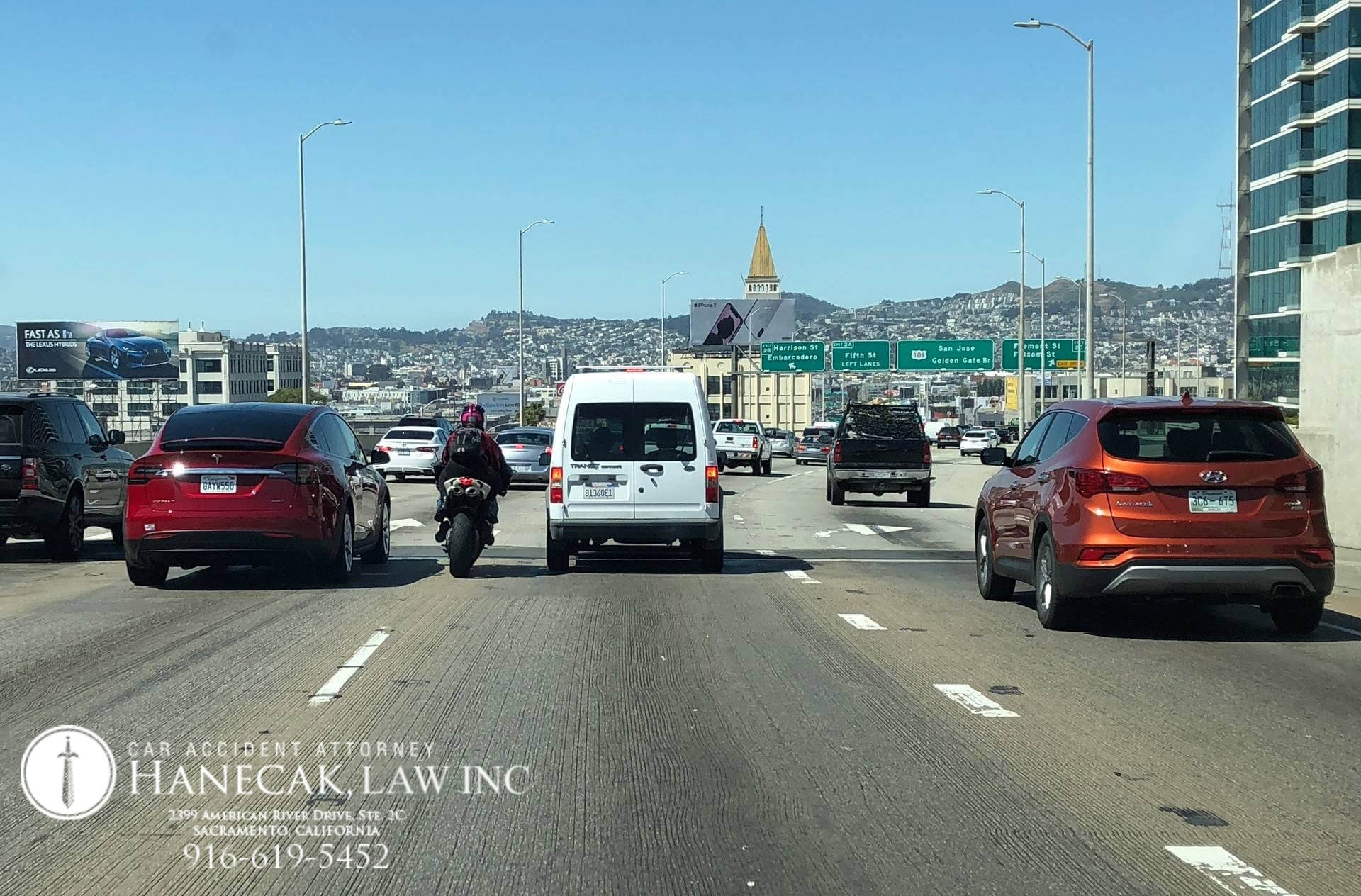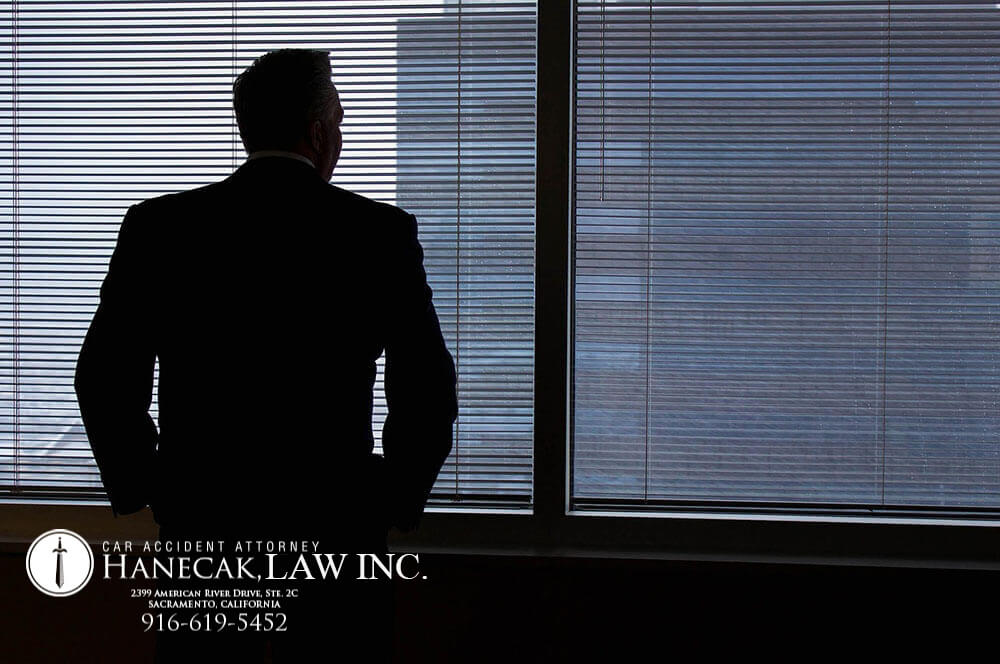Many motorcycle accident cases will settle before a lawsuit is ever filed. But there are scenarios where the insurance company will give the injured person little or no choice but to file one. This could be due to a lowball offer, denying coverage, or a fight about liability.
While 95% of lawsuits that are filed will settle before trial, there is still a strong likelihood that you will be deposed by the defense so they can fully evaluate your case.
What is a deposition?
A deposition is where a witness will give testimony under oath as part of the “discovery” process. During the deposition, the defense attorney will ask background questions like education and employment history, and then move on to the facts of your accident like the cause, what you did after the accident, your injuries, medical treatment you received, pain and suffering, and other damages being claimed as a result of the motorcycle collision.
Usually, the people present at a deposition will be the person being deposed (in this case, you as the plaintiff), your personal injury attorney, the defendant’s attorney, and a court reporter. California law allows parties to sit in on other witnesses’ depositions, but it’s relatively rare in an injury case.
While the length of a deposition will vary based on the circumstances of your case, generally injury depositions will last a couple of hours.
How do I prepare for a deposition?
Your motorcycle accident attorney will prepare you for the deposition in advance. They will try to anticipate potential questions the defense attorney will ask you and review the facts of your case. It’s normal to be nervous about the whole process, especially if you’ve never been deposed before.
Injury depositions can be intimidating because the other side is trying to find ways to defend against your case. Sometimes, they will ask what seem like invasive and personal questions that don’t sound relevant to the injury. While they’re entitled to ask certain things, if it goes too far, your personal injury lawyer can object and stop the line of questioning. Some lawyers will act as if they’re on your side to try to get information from you they wouldn’t otherwise be entitled to.
Even if you’re not at fault and completely justified in your position, some people come away feeling as if they’re guilty of something. This is completely normal, but you shouldn’t feel guilty about being injured by someone’s negligence.
What should I do at my bike crash accident deposition?
Your accident injury deposition can have a huge impact on how your case is treated by the other side, so it’s very important to do the right thing. One of the main things the defense attorneys want to see is how you present as a witness and if the jury will believe what you’re saying. This is called a “sympathetic witness.”
Here are some things you should do in a deposition:
• Dress appropriately. Although you’re not in court, this will show the other side you’re treating it seriously and can present well to a jury.
• Ask for a break if you need one. There is no need to force yourself through the deposition if you need a rest break. California law permits this.
• Answer truthfully. Don’t guess or make up a story. If you do, and your story changes, it can be used at trial against you and it won’t look good in front of a jury. It’s ok to say you don’t recall or remember something.
• Answer simply. If the lawyer asks you a “yes” or “no” question, answer “yes,” “no,” or “I don’t know.” Lawyers know that people generally don’t like silence, so a witness may keep talking and say something that hurts their case.
• Answer the question asked. If the answer calls for a list, answer that list fully. Don’t try to outsmart the attorney and start answering something else you think they want to hear.
What shouldn’t I do at a deposition?
Because your deposition can have such a big impact on your case, there are several things you shouldn’t do when being deposed. Generally, you shouldn’t:
• Volunteer information. Wait until the lawyer asks you a question, and then only answer that question.
• Tell the attorney where to find more information. It’s the attorney’s job to ask questions, not yours to tell them where to find it.
• Argue with the opposing attorney. Although they aren’t on your side, arguing or being combative will show them that they can get under your skin at trial. This could prove to be bad in front of a jury because they may not think the lawyer is being unreasonable in his line of questioning.
• Discuss things during a break. If you speak with your attorney, that’s fine. But don’t make phone calls or have discussions where the other side can hear you.
• Guess. Only answer questions you know the answer to. There is nothing wrong with not remembering or not knowing.
The best Sacramento motorcycle accident attorneys will have you prepared as best they can for your deposition. This day will be an important one for your case. Answer truthfully, simply, and don’t guess. And certainly don’t feel guilty if you were injured by someone else’s negligence. That is exactly how the insurance company wants you to feel so you accept a lowball offer and avoid trial.
If you were injured in a motorcycle accident in Sacramento or the greater Sacramento area by someone else’s negligence, we can help. We will go through the facts of your case with you at no cost and help determine your options. We always had given an honest assessment of your claim.
Give us a call at (916) 619-5452or fill out our form online and someone from our office will be in touch with you to discuss your injury claim.






